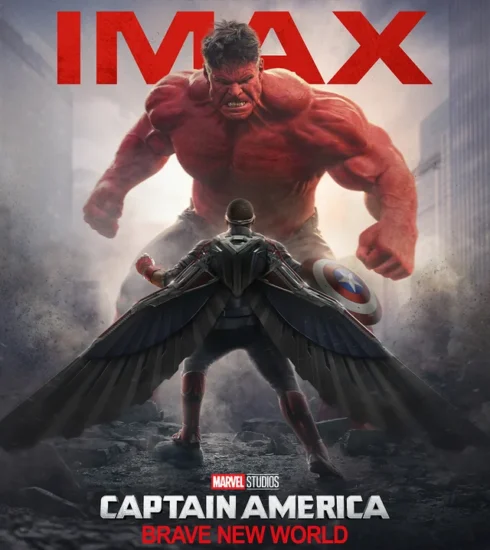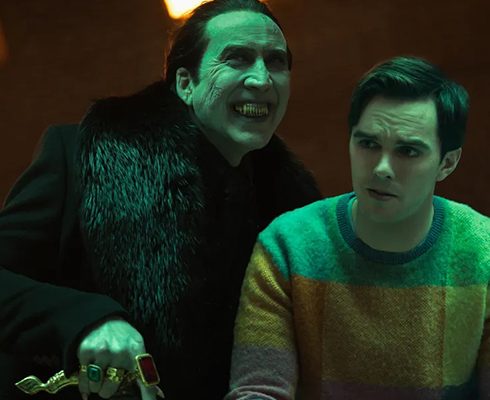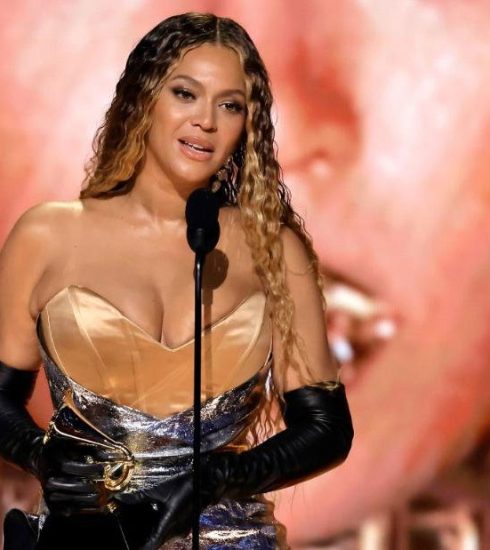Movie Review: Black Panther: Wakanda Forever
2018’s Black Panther was a billion-dollar blockbuster, a Best Picture nominee, and a genuine cultural phenomenon, even beyond its place in the colossal Marvel Cinematic Universe. The 2018 superhero flick won over audiences and critics with its striking Afro-futurist aesthetic, thoughtful social commentary, and engaging performances, led by 43-year-old actor Chadwick Boseman. Two years later, the entertainment world was shocked by the news that Boseman had succumbed to a long, secret battle with colon cancer. With a Black Panther sequel already in the works at Marvel Studios, Coogler and producer Kevin Feige elected not to recast the role and instead fold Boseman’s death and its impact on the cast and crew into the narrative. Consequently, Black Panther: Wakanda Forever is a film about loss and mourning and a lot more. Though as long, noisy, and cluttered as any other superhero blockbuster, Wakanda Forever is a sincere and effective genre-mashing drama and one of the better instalments in the Marvel canon.
Wakanda Forever is burdened with a long checklist of narrative and thematic objectives. First and foremost, Coogler and company are forced to address the loss of their lead character in a manner that respects the much more significant loss of their real-life friend and collaborator. Appropriately, Wakanda Forever opens with the offscreen death of King T’Challa from an unnamed disease that has caught his loved ones off-guard. Throughout the film, their differing processes of grief are touching and sincere without ever veering into treacly or exploitative, and the film is extremely selective about the use of Boseman’s likeness. What might be most remarkable about the handling of Boseman’s absence in Wakanda Forever (and I mean this in the most complimentary way) is that it never feels like he is missing from the film. Instead of having one performer take Boseman’s place as the lead of the sequel, everyone steps up. Wakanda Forever isn’t missing a Black Panther; the rest of the ensemble grows closer together such that there is no vacuum left to fill.
Of course, the film is still called Black Panther, so its story also needs to elevate a member of the first movie’s ensemble to the titular role. In line to inherit the mantle is his sister, Princess Shuri (Letitia Wright), a genius scientist who blames herself for failing to cure T’Challa’s illness. Unlike her mother and brother, Shuri is not a spiritual person and does not believe in the afterlife. In the opening scene, as she works desperately to recreate the extinct herb that will restore her brother’s strength, she prays to Bast for success, pledging in return never to doubt her existence again. Shuri fails, and her doubt deepens, not only in Bast but in herself. The film’s action and political conflict become an avenue through which to explore that doubt, as well as her rage and despair over her terrible loss. Shuri may have the most complicated emotional journey of any lead character in a Marvel film, and Letitia Wright is game for the challenge. Truthfully, though, this is an ensemble movie, and Wright is somewhat outshone by the dry wit and badassery of Danai Gurira’s General Okoye and by Angela Bassett’s Queen Ramonda, who gives the film’s big Oscarworthy monologue early in the runtime.
The first Black Panther had a dash of James Bond in its DNA, and though Wakanda Forever doesn’t have quite as much swagger, it does mirror its structure of using slick spy-fi action as a precursor to an all-out war. The sequel doubles down on the political intrigue, exploring the consequences of a small nation in Africa ascending to the status of global superpower in the 21st century. Following T’Challa’s death, Ramonda takes the throne and attempts to keep Wakanda’s political rivals in check, including (especially) the United States. With the Black Panther gone, it’s up to T’Challa’s grieving family and friends to keep aggressive global powers from acquiring the key to Wakanda’s prosperity, an extraterrestrial metal called vibranium that can be found only within their borders. Or at least, that’s what they’ve always believed.
Lead baddie Namor may lack the personal animus that made Killmonger such an unusually compelling Marvel villain, but he shares that character’s postcolonial anger, his distorted righteousness, and his utter disinterest in wearing clothes. Like Killmonger, Namor represents a violent but not altogether illogical threat to Wakanda — one that interrogates the integrity of its Afrofuturistic utopia rather than flatters it, and plays into imperialistic strategies of pitting rival tribes against each other. Combined with a ravishing underwater kingdom that cinematographer Autumn Durald Arkapaw ingeniously brings to life with counterintuitive flashes of red, that’s enough to make Namor one of the more arresting villains that Marvel has ever brought to the screen.
The runaway success of the first Black Panther allows Wakanda Forever the confidence to casually indulge in what might have previously been considered risky decisions. The movie’s ensemble is predominantly female, and for once Marvel hasn’t tried to make a big deal about it on the press tour. Martin Freeman reprises his role as CIA Agent Everett Ross, but this time the token white guy is not on the poster and the US government is more openly (and realistically) antagonistic. Characters switch between languages frequently, even in mid-sentence, and a surprising amount of the dialogue is subtitled. Some of its musings about faith vs. science and innovation vs. tradition get buried under mountains of plot, but there’s plenty of food for thought to be found here.
The plot moves at a brisk clip, but even so, Wakanda Forever runs an intimidating 161 minutes (or 1 Avatar). Much of the movie’s length is justified, as each plot development represents a new step in Shuri’s grieving process. On the other hand, some of the movie’s bloat is a symptom of its role in the larger Marvel machine. The first Black Panther got to function mostly on its own, but now that Black Panther is one of the pillars of the Marvel Universe, the sequel has been saddled with promoting upcoming studio ventures (most notably the Disney+ series Ironheart) on top of telling its own story. It’s not as glaring a problem here as it is in Iron Man 2 or Dr. Strange 2 (and Wakanda Forever is a much better movie overall than either), but the extra appendages are just as noticeable. Like the first Black Panther, Wakanda Forever’s third act is its weakest, devolving into a big messy slugfest as Marvel films tend to do. Though the visual effects themselves are more fully baked than last time around, there’s a jarring plasticity to some of the characters mid-battle.
However, as overgrown as it is, Wakanda Forever has strong enough bones to hold itself together. At its heart, it feels like a film made with a sense of purpose, a desire to honour a lost friend, but not to do only that. One can easily imagine a version of this film that is a two-hour eulogy, not just for Chadwick Boseman but for the film that Ryan Coogler had intended to make with him. Instead, it’s both an affirmation of his legacy and an assurance that, though it might be difficult, life can go on without him.
8/10
Boluwatife Adesina is a media writer and the helmer of the Downtown Review page. He’s probably in a cinema near you.






